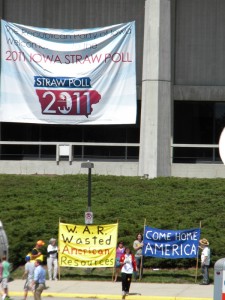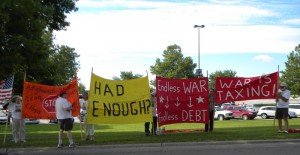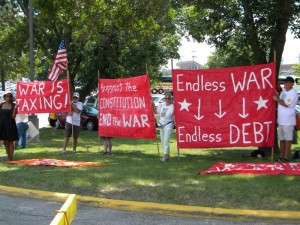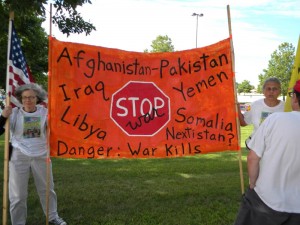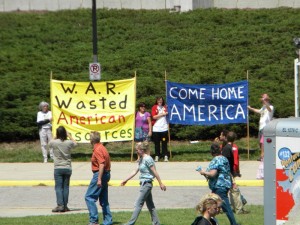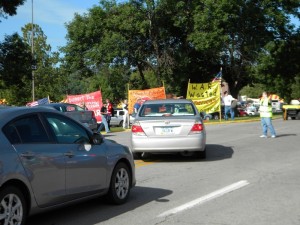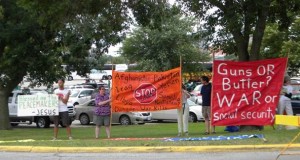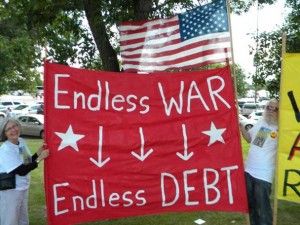Long time antiwar activist Phil Restino of Central Florida Veterans For Peace sent us this letter on the anniversary of Martin Luther King, Jr.’s assassination:
Hello All,
It was 45 years ago today on 4 April 1967 at the Riverside Community Church in Harlem, NYC that Rev. Martin Luther King, Jr. gave his powerful speech condemning the U.S. government’s illegal and immoral war of aggression in Vietnam. The speech was entitled “Beyond Vietnam – A Time To Break Silence” and some believe that it sealed his fate as far as being murdered in Memphis a year to the day later on 4 April 1968.
To read the entire speech as well as access the audio recording of the speech, go to [here] and please share it with others.
It was members of Clergy and Laity Concerned About Vietnam who were hosting Dr. King and it was from their promotions that Dr. King borrowed the statement “There comes a time when silence is betrayal”, which has been repeated and used by activists ever since. However, the second half of the statement added by Dr. King was “and that time has come for us in relation to Vietnam” making very clear that the betrayal of silence in regards to the American people, and in particular the religious and civil rights leaders, not strongly speaking out against the United States’ war on Vietnam.
Somewhat early into the speech, Dr. King was relating his experiences of traveling the United States over the past 2-3 years and visiting the ghettos of various cities and how it was some young disadvantaged black men who questioned him as to why he wasn’t speaking out about the violent war of aggression our government was inflicting on the poor people of Vietnam. The following is how Dr. King related the experience to the audience that day:
As I have walked among the desperate, rejected, and angry young men, I have told them that Molotov cocktails and rifles would not solve their problems. I have tried to offer them my deepest compassion while maintaining my conviction that social change comes most meaningfully through nonviolent action. But they ask — and rightly so — what about Vietnam? They ask if our own nation wasn’t using massive doses of violence to solve its problems, to bring about the changes it wanted. Their questions hit home, and I knew that I could never again raise my voice against the violence of the oppressed in the ghettos without having first spoken clearly to the greatest purveyor of violence in the world today — my own government. For the sake of those boys, for the sake of this government, for the sake of the hundreds of thousands trembling under our violence, I cannot be silent.
It was this quote from Dr. King that inspired myself and weekly columnist for The Black Commentator and veteran of the Black Panther Party, Larry Pinkney, to name our new monthly radio program We Cannot be Silent: with Phil Restino and Larry Pinkney. It was only fitting that our first broadcast of “We cannot be silent” was on 15 January 2012, the actual birthday of Martin Luther King, Jr., and that part of our discussion was on Larry Pinkney’s recent column tying together the first Black American President’s signing of the 2012 National Defense Authorization Act (NDAA) on 31 December 2011 which would give the President the legal authority to turn the U.S. military on the people of the United States with Dr. King’s bold condemnation of President Johnson’s use of the U.S. military in an aggressive war on the people of Vietnam.




